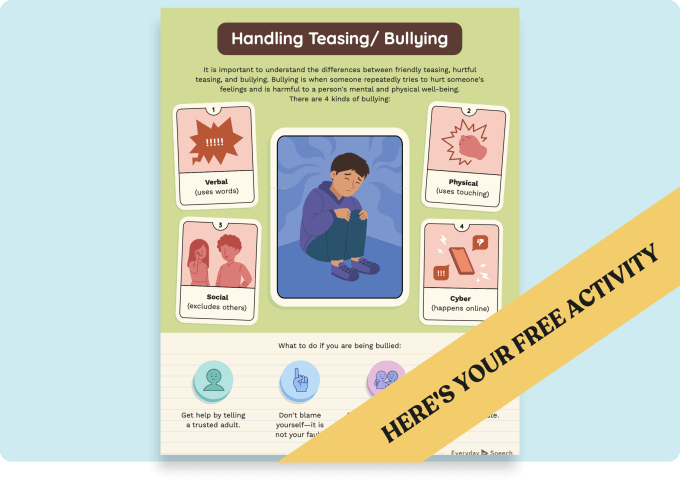Effective IEP Goals for Teaching Polite Bathroom Requests
Get free social skills materials
No-prep lessons on self-regulation, emotional recognition, conversation skills, and more.
Sign up hereDownload 50+ Example IEP Goals
Customizable library of strengths-based goals
Introducing the concept of asking to use the bathroom politely is a crucial life skill that plays a significant role in special education. It fosters students’ independence, respect for others, and proper etiquette in various social settings. In this blog post, we will explore the target skill of making polite bathroom requests, the role of specialists in supporting its development, and specific IEP goals to improve this skill in elementary students.
Understanding Polite Bathroom Requests
Polite bathroom requests involve students learning to ask their teacher or another adult in a respectful and quiet manner when they need to use the restroom. This skill not only promotes a positive learning environment but also enhances students’ social interactions and wellbeing by teaching them to be considerate of others and follow established rules and routines.
The Role of Specialists
Various specialists can support the development of the target skill:
- Speech-Language Pathologists: Help students improve their communication skills, including the appropriate language and tone to use when making polite requests.
- Social Workers: Assist students in understanding social norms and expectations, such as waiting for permission before leaving the classroom.
- Psychologists: Address potential emotional or behavioral challenges that may hinder students from effectively requesting to use the bathroom.
- School Counselors: Offer guidance on strategies to encourage self-advocacy and independence in students.
IEP Goals for Polite Bathroom Requests
Here are some specific SMART IEP goals to improve the target skill in students:
- Goal: Within six weeks, the student will independently and politely ask to use the bathroom in 4 out of 5 opportunities.
- Strategies and Activities: Role-play scenarios, practice using polite language, and provide visual reminders.
- Goal: Within eight weeks, the student will wait for permission before leaving the classroom to use the bathroom in 9 out of 10 opportunities.
- Strategies and Activities: Social stories, visual cues, and positive reinforcement for waiting patiently.
- Goal: Within ten weeks, the student will walk quietly in the halls when going to the bathroom in 8 out of 10 opportunities.
- Strategies and Activities: Modeling appropriate behavior, practicing hallway expectations, and using a visual schedule.
Implementing and Measuring Progress
To effectively implement and measure progress, educators can:
- Collaborate with specialists to develop tailored strategies and activities.
- Monitor and document students’ progress using data collection tools and anecdotal notes.
- Adjust goals and strategies as needed based on students’ progress and needs.
Conclusion
Teaching students the target skill of making polite bathroom requests can greatly improve their overall school experience. By implementing specific IEP goals and collaborating with specialists, educators can support students in developing this essential life skill. We encourage you to apply these IEP goals and invite you to explore more resources at Everyday Speech Sample Materials.


